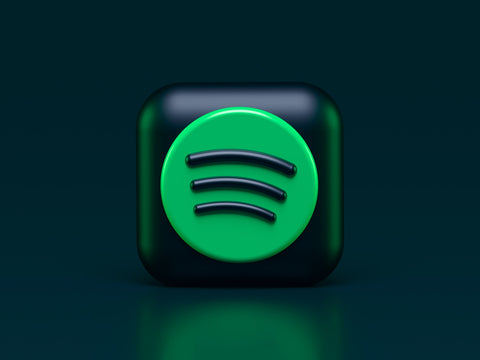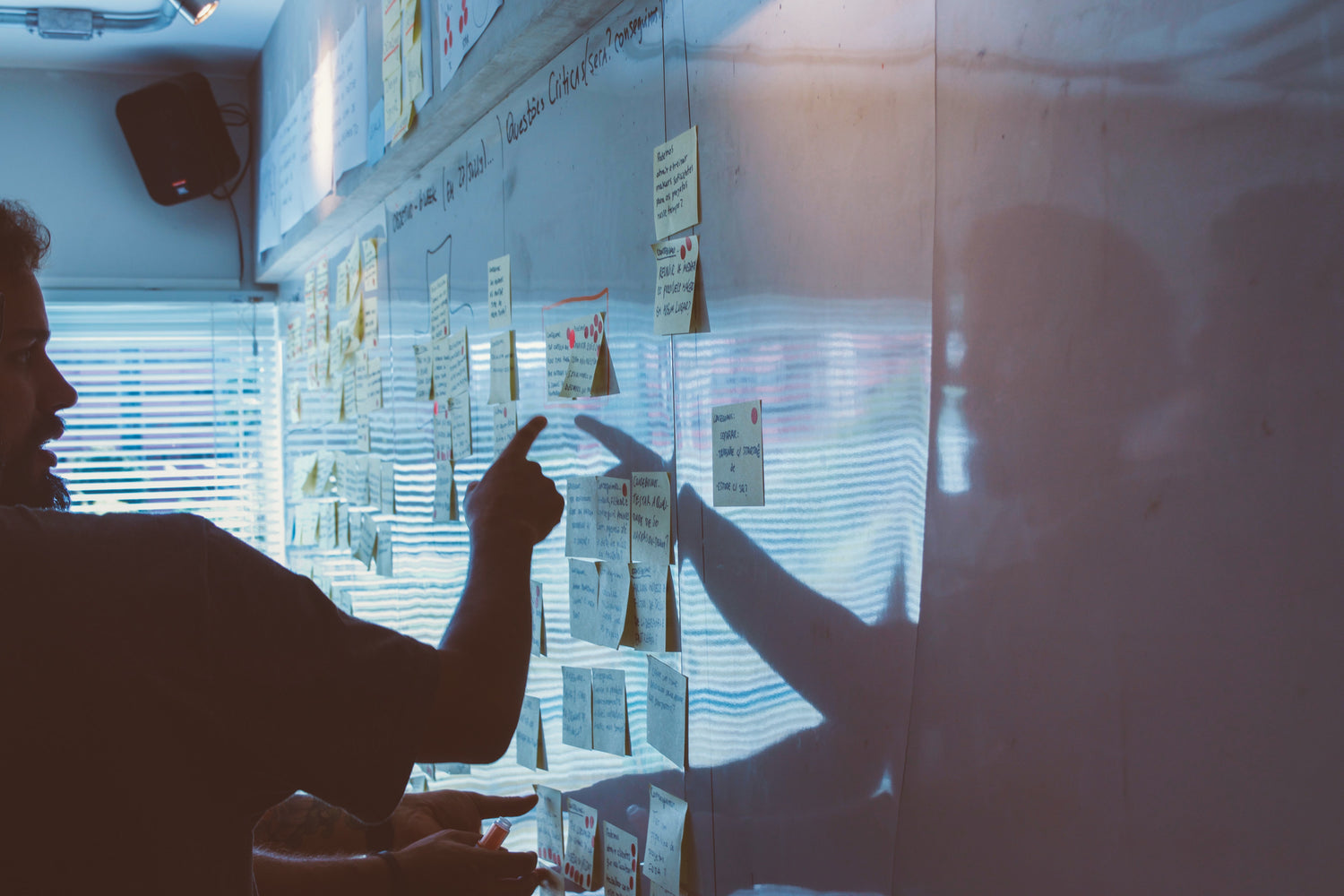Photo by Startaê Team on Unsplash
--------------
Last year, we gave you tips for playing live music again. We hope they helped you to get back on stage and do what you love.
However, not all musicians can promote themselves by playing every week. That involves a massive time commitment as well as countless expenditures like gas, hotels and repairs.
Whether you're the veteran performer or the homebody songwriter, promoting your music is vital to get attention in the digital age.
It's also a huge undertaking. We want to be on your team.
So, we poured through the data and statistics to learn 2024's best strategies for self-promotion. In doing so, we've made an easy-to-follow list of the 6 best ways to promote your music right now.
Let's get to it.
Get Your Music On the Radio
One thing we saw was that radio remains the most consumed media by American adults.
In fact, in the summer of 2020, almost 90% of adults listened to the radio.
Now, much of this was from news stations, sports radio and advertisements. Even so, the vast reach of radio tells us something important: getting your music on the a radio station is still a superb way of increasing exposure.
It might surprise you to find out how accessible radio stations are. Remember that electronic press kit we helped you make? Pull it out, because it's your golden ticket to radio plays.
Start local. If you live in a college town, there is likely a radio station run by its students. College radio stations thrive off of finding hidden gems and undiscovered artists. Plus, you are much more likely to get in touch with a real person when you reach out to them.
Send in your EPK and ask them if they have radio spots dedicated to local bands.
Apply to Playlists on Streaming Services

Photo by Alexander Shatov on Unsplash
The average Spotify user spends 25 hours a month on the app. It's no secret that the best way to get a piece of that time is to get your music on a Spotify sponsored playlist.
But it's hard, and blogs rarely consider the fact that the majority of musicians won't be able to do it without consistent, long-term work. And the fact is, vague outreach strategies won't fit the bill.
You want data-based, actionable tips to get on playlists. We have them.
Reach out early
You want to send unreleased music for consideration. Spotify has clearly stated that songs submitted for playlist consideration must arrive at least one week before their release. The more time, the better.
Optimize Your Descriptions
Spotify has publicly said that "the more info [they] get," the more likely it is that a song will be added to an editorial playlist. They outline the song submission process in a recent video. Here are our main takeaways:
1. Spotify receives over 20,000 songs per day for consideration. Giving your tracks the proper tags can ensure that it gets in the right hands. There will be plenty of options to choose from, including "style," "mood," "genre," and even "type of recording." Pick the ones that best fit your track.
2. You'll have a chance to write out a song description. Be as specific as possible. Discuss your influences, circumstances and emotions surround the track. Help curators to understand the character which surrounds your music.
Optimize Metadata
Those categories we've just discussed (genre, style, etc.) are all part of your song's "metadata." It exists to give a structural context to your song. But it's not just telling people what sort of music you made. It's also telling people - and playlist curators - who made it, who engineered it, and more.
Let Spotify tell you why metadata is important: "If any of this information is missing or incorrect it can have an adverse effect on how its creators are compensated." Plus, it can prevent songs from being considered for editorial playlists altogether.
So before you hit publish, make sure you spell out "Artist Name, Producer, Writer, Song Title, Release Date, Genre [and]. . .Track Duration." These little bits may seem inconsequential, but the picture they paint is what sells your music.
Release Your Music on a Distribution Service
Song and album distribution services are often criticized, sometimes with good reason. They lack customizability, and artists must pay extra for anything besides the most basic features.
That being said, there is one vital thing they do, and that is get your music everywhere at once. Here is why that is important right now.
Nielsen also published two incredible reports on music in the United States. The 2018 U.S. Music 360 report, and the 2019 Mid-Year Report. Here's what they revealed:
1. TikTok is the fastest growing social media application by far. And it's how we consume tons of new music. In 2019, TikTok boasted around 500 million users. In 2023? 1.7 billion. It may sound silly, but having your songs on TikTok can mean incredible exposure.
2. You may be surprised to find out that Discord actually has a wealth of lively, music-specific servers. In fact, Cloudwards' recent piece on 2022 Discord statistics indicates that "78% of users claim to use the platform primarily for non-gaming activities. . ." And with 150 million active users each month, joining the conversation can be a wonderful addition to your social media portfolio.
3. People are relying more on voice activated devices to play their music. What's more, listeners who use those devices spend more than double the time listening to music than the average American. Ensuring that Alexa and Google Home can easily find your music means more plays.
Sending your music out through a service like Distrokid or Tunecore covers everything. In fact, for a small up-charge, Distrokid will add your music to any new platforms they work with in the future.
Call on the Bloggers
From 2016-2018, we watched as the media deemed music blogging dead. Its fall came at the hands of music streaming giants like Spotify, Apple Music and Tidal.
Then, Covid. And now, blogger outreach is still very much worth it. Especially for local bands and niche-genre artists.
Websites like Submit Hub and Hype Machine assemble hundreds of blogs and playlists with whom they have partnerships. You buy credits through their websites and spend them on submissions.
It's a killer idea, and it can yield good results. However, it is the definition of pay to play. Bands and musicians often receive short, vague rejection notices, and end up without much idea on what to do next.
Fact is, you can do much of this outreach for free. The key is to find your niche. Make ambient music? Harsh noise? Post-rock? There are blogs and playlists dedicated to those genres. Same goes for whatever your sound is. It's time to reach out to them.
Why? According to Statista, the pandemic music phase saw concert ticket sales drop from over 50 million in 2019 to 13 million in 2020. Now, concerts are back. But the avenues of music discovery which prospered during the "Covid days," like blogging, are still in a better position than ever.

Photo by Claudio Schwarz on Unsplash
Let's walk you through the process step by step.
1. Research first. It's a tad time consuming, but it's the foundation of successful outreach. Look for blogs that are local to your area, or are open to taking music submissions.
2. Fine tune exactly what you want to send. You want to put out a polished product for review or consideration.
3. Write personalized emails to editors. Submitting to bloggers and magazine editors requires tact, conciseness and sincerity. The last thing you want to do is send an email with the wrong name or publication mentioned.
4. Send your music that hasn't come out yet. You are much less likely to get a feature if your music has been out for a while. New songs have a short shelf life in written media.
5. Ensure that you're following submission guidelines. Many places will throw out entries which do not meet the base requirements.
Get to the Gig, and Stay There
We've talked a lot now about digital ideas for promotion. Still, it's impossible to discuss music promotion without mentioning live performances. You're seeing in real time the rebirth of the live music industry. Concerts are selling out again, and listeners are searching everywhere for new music.
Start booking. We know, that's easier said than done. Here are some tried and true tips for getting gigs:
1. Go to live shows. We cannot stress this enough. Both local and global music communities thrive on the reciprocity of performance. By showing up to support other bands, you will form meaningful connections and relationships. That pays dividends when it's your turn to play.
2. Polish up your EPK and social media accounts. Looking professional gives confidence to the talent buyers who are booking your show.
3. Come with a bill. Every venue is different, but as a rule you should approach a booking agent with as close to a full lineup as you can. Get together 3-4 artists or groups that you want to play with. This will give the booking agent a full picture of what the show will look like.
4. Perfect your concert etiquette. Show up on time for load-in. break down your gear efficiently. Stay after your set to watch the other bands play. A sense of selflessness and community will take you a long way.
Social Media and Content Consistency

Photo by Charles Deluvio on Unsplash
How often have you seen a band write a song, promote the hell out of it, and then vanish for three months?
We have (done that). And it doesn't work. At the risk of sounding trite, promoting a band is like promoting a business. And businesses with a consistent brand voice are worth 20% more than brands without one.
You'll see big names on YouTube say something like: "new video every Friday!" That's not because that's when it's most convenient for them. It's because that consistency gets them more views, and more views means more money.
Think about how character development works in a film. When we first meet a character, we don't have much feeling toward them. As the movie progresses and we witness their hardships and motivations, we gain empathy for them.
Treat your musical project in that way. Consistently show your character and heart to the public to ensure they won't forget about you.
Here are some content ideas to get you going:
1. Show fans your practice setup. Are you in your drummer's garage? Are you in a local studio space? Show us where you create.
2. Introduce yourself and your bandmates. Showcase where they come from. How did they get into music? Who are their influences? This goes double if you're a solo artist. Let people in.
3. Share teasers of new tracks and videos. Add a little mystery to your fans' feed with a short riff or an improv session.
TL;DR: What You Need to Know About Music Promotion
It's time to find a balance between engaging the online musical landscape and the reemerging live music industry. Take to social media to tell the story of your music or your band. Attend as many live shows as you can, make friends, then go and play yourself.
Old school techniques like radio and blog outreach are worth it, so take advantage. Be consistent with your efforts and you are sure to see more plays.
Gigging is integral for promotion. Singular Sound's products are specially designed to take practice and performance to the next level. The BeatBuddy and Aeros Loop Studio provide authentic sounds with next generation technology. There's no better feeling than crushing your set. We help make that happen.
We'll keep bringing data-driven insights to your blog, so stick around for the next one. In the meantime, subscribe to our mailing list to get hilarious, heartfelt updates on Singular Sound's new products and plans. Consider it the musical inner circle.
Oh, and keep rockin' everyone.





Leave a comment
All comments are moderated before being published.
This site is protected by hCaptcha and the hCaptcha Privacy Policy and Terms of Service apply.